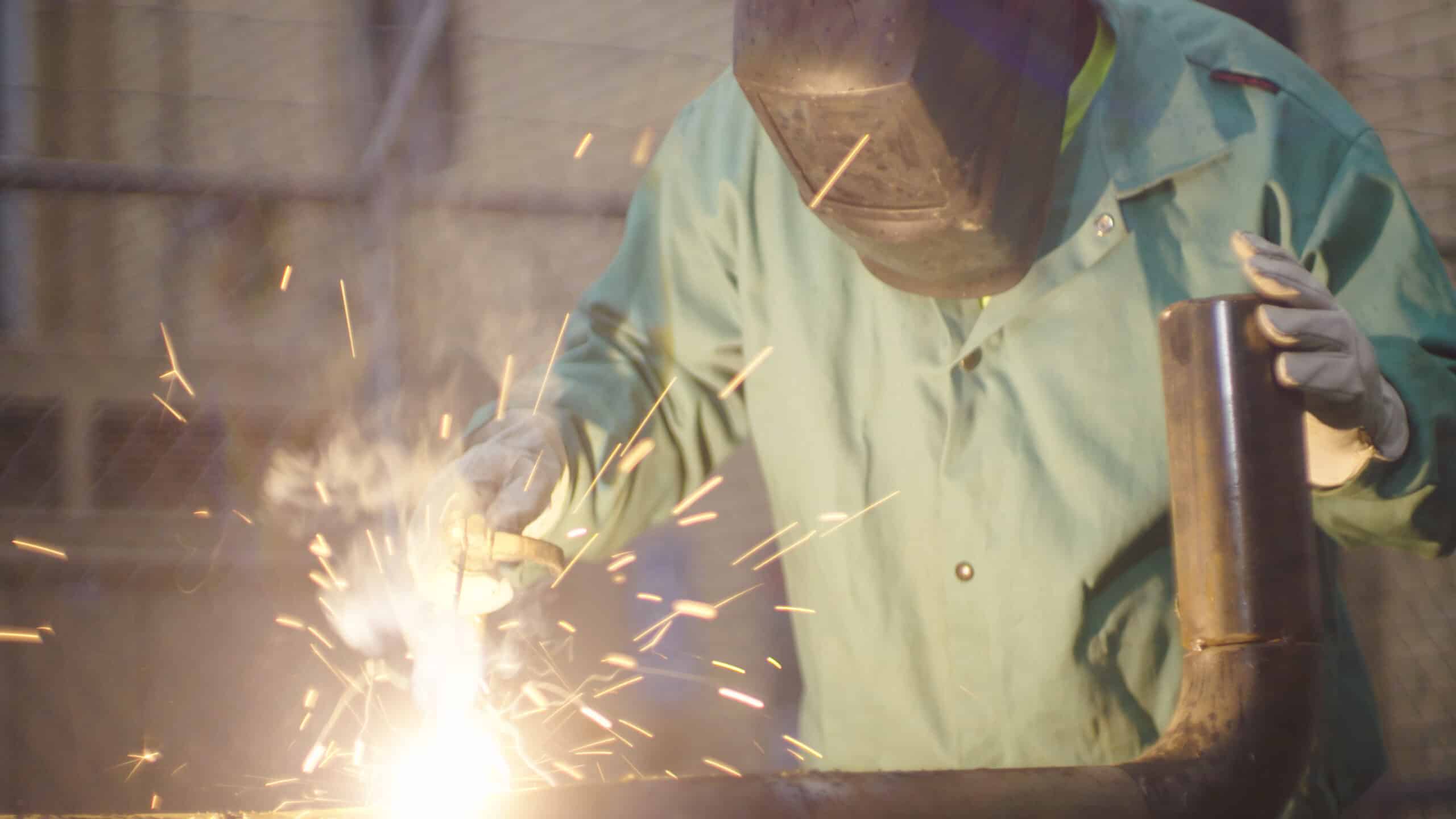
What Does a Welder Do?
The great Michael Scott once defined a wedding as “the fusing of two metals with a hot torch,” and wow, was he confused.

While the hilarious TV show, The Office, has some fun with this profession, welding is one of those skills that holds the entire construction world together—literally. Welders are the pros who get called in to handle all the metalwork on a construction site. These crucial tradespeople make sure everything from buildings to bridges are rock-solid.
Let’s dive into what welders do, the types of welding jobs out there, and how you can get started as a welder. Plus, we’ll look at why using a recruiting and staffing company – like NCW – is a smart move for finding an opening for this sought-after construction job.
Duties of a Typical Welder
Interested in what a typical day would look like as a welder? Here’s a sneak peek:
- Prep and Setup: Before any actual welding can begin, the job site must be properly prepped. This means cleaning and inspecting metal surfaces to make sure they’re spotless. You’ll also set up your welding machine, tweaking the settings based on the metal and the type of welding you’re doing.
- Welding “Magic”: This is where the action happens. Welders use different techniques like MIG, TIG, and stick welding to join metal parts together. It’s all about melting and fusing metals to create strong joints.
- Quality Checks: No one wants a weak weld. You’ll inspect your work for any defects—cracks, incomplete fusion, or other issues—and fix them to meet industry standards.
- Maintenance and Repairs: Sometimes, it’s not just about building new stuff. You might also be called in to repair existing structures, cutting out damaged sections and welding in new metal.
- Safety First: Welding can be dangerous, so safety is key. You’ll wear protective gear like helmets, gloves, and flame-resistant clothing to keep yourself safe from burns, sparks, and fumes. Plus, you’ll make sure your work area is well-ventilated and free of anything flammable.
Examples of Welding Jobs
Welders work on all sorts of projects and are some of the most important construction tradespeople. Here are some examples of places you might find yourself welding:
- Structural Welding: This is all about joining steel beams and columns to build the framework of buildings and bridges. Precision and strength are crucial here.
- Pipe Welding: In industrial settings, you’ll weld pipelines that carry water, gas, and other fluids. This requires special techniques to ensure leak-proof joints.
- Heavy Equipment Manufacturing: Think construction machinery, mining equipment, and agricultural tools. You’ll weld thick metal plates and components to build these beasts.
- Automotive and Aerospace: In these industries, you’ll work with lighter metals and need to meet strict quality standards to ensure safety and performance.
How to Become a Welder
Interested in becoming a welder? Here’s how to get started:
- Education and Training: Many welders start with a high school diploma or GED, then head to a trade school or community college for welding programs. These courses teach the basics and offer hands-on practice.
- Get Certified: Certification isn’t always required, but it can boost your job prospects. Organizations like the American Welding Society (AWS) offer certification programs that can make you stand out to employers.
- Gain Experience: Start with entry-level jobs or apprenticeships to build your skills. The more experience you have, the more job opportunities you’ll find.
- Keep Learning: Welding technology and techniques are always evolving. Stay up to date with continuing education courses and certifications.
How to Find Welder Jobs
Now that you have the knowledge of what a welder does and how to become one, here are some tips on how to find the welding job that is right for you:
- Network: Get to know people in the construction industry. Attend events, go to job fairs, join trade associations, and connect with other welders and contractors. You never know where your next job might come from, but knowing the right people can help get your foot in the door.
- Online Job Boards: Websites like Indeed, LinkedIn, and specialized trade job boards are great places to find welder positions. Create a killer profile and start applying!
- Recruiting and Staffing Companies: Obviously, we were getting to this! One of the best ways to find welding jobs is through recruiting and staffing services. These agencies specialize in matching skilled workers with employers who need them. They’ve got tons of industry connections and can help you find jobs that aren’t even advertised.
Recruiting and staffing companies can be a lifesaver for welders, especially companies like NCW!
At NCW, our recruiters are dedicated to making personal connections with every job seeker. We don’t want to just help you find your next welding job, we want to match you with a company and role that will accelerate your career to wherever you want to go. We’ll handle all the boring admin stuff—resume prep, interview scheduling, contract negotiations—so you can focus on what you do best: welding. Plus, NCW offers ongoing support throughout your role to help you keep climbing the career ladder.
In a nutshell, welders are the unsung heroes of the construction world. By understanding their duties, exploring different welding jobs, and leveraging resources like NCW as an experienced recruiting and staffing service, you can carve out a rewarding career in this essential trade.
Next Steps
Ready to discover your success in the field? Connect with a recruiter and find work as a welder today!
Submit your Resume Here
Click Here to Meet the NCW Team
